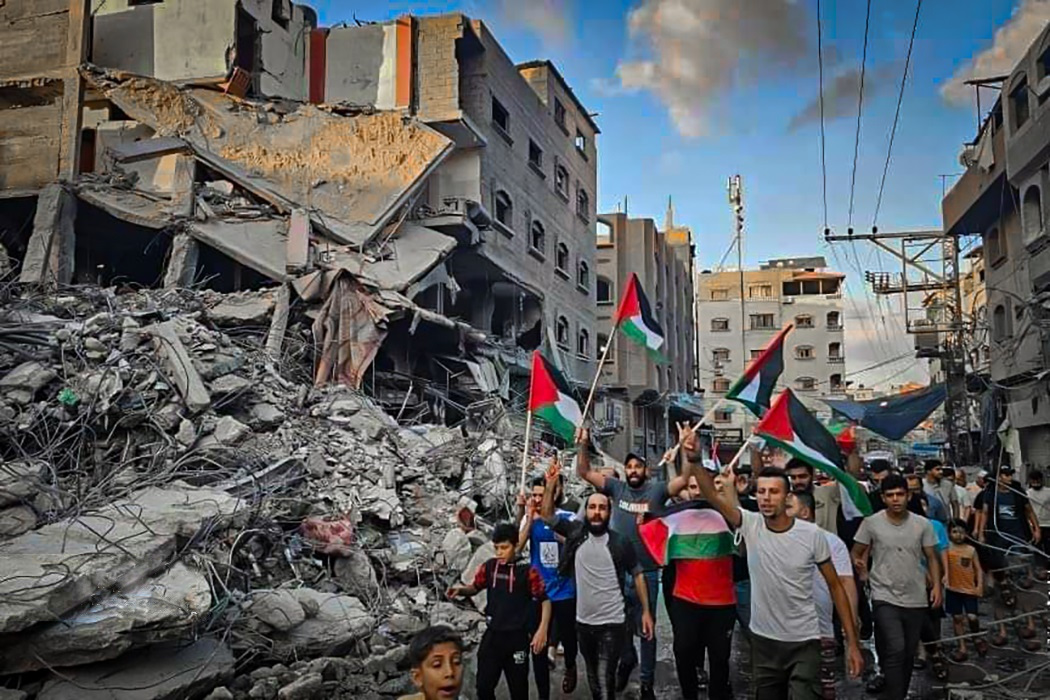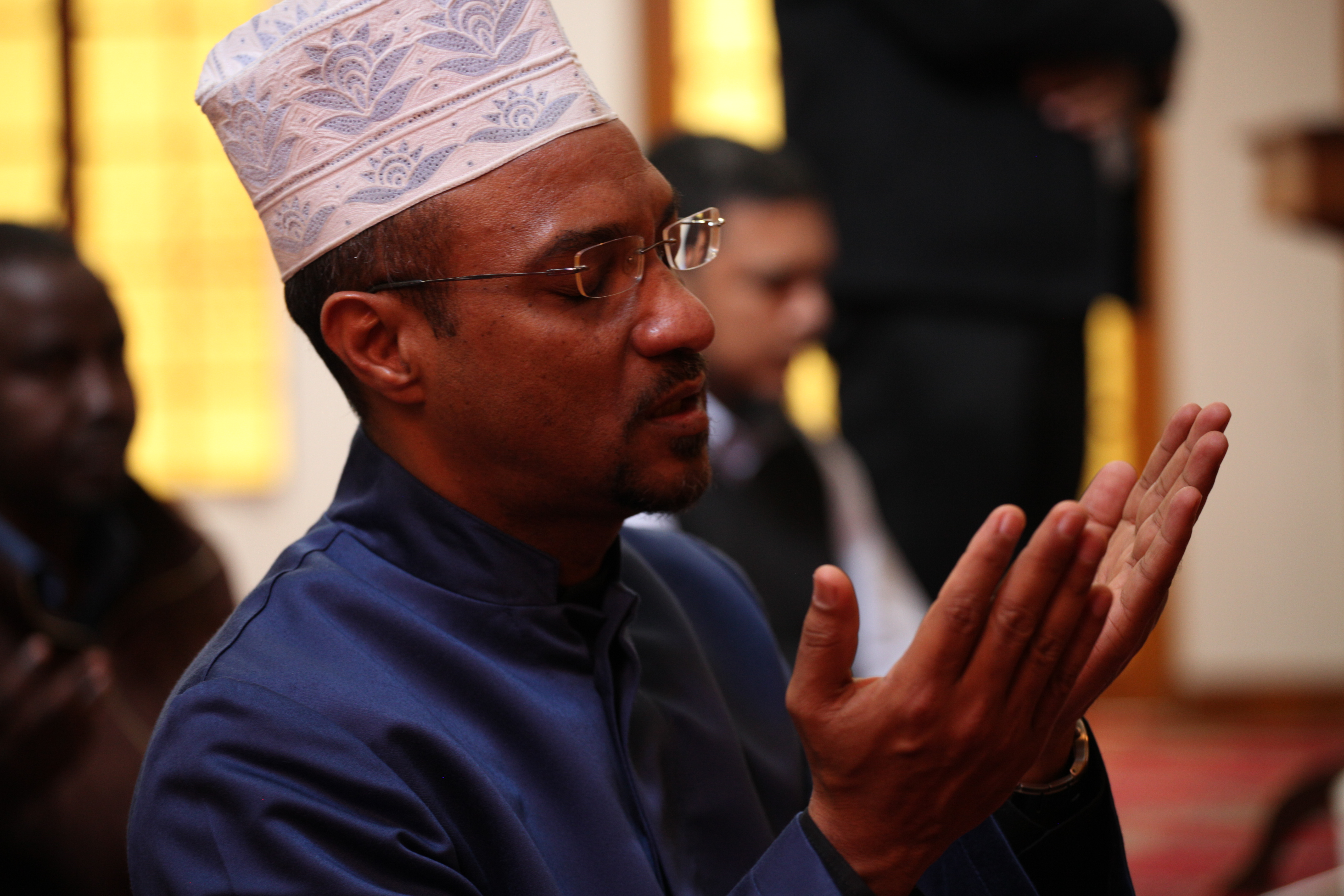
Positionality
I have served as Imam of Claremont Main Road Mosque, located in Cape Town, South Africa, for close to four decades. In this capacity, I have and continue to play a leading role in the vibrant interfaith solidarity movement against apartheid. In the wake of the assassination of Palestinian American journalist Shireen Abu Akleh in May 2022, we established a South African Interfaith Forum for Palestinian Solidarity, which is made up of anti-apartheid Christian leaders, South African Jews for a Free Palestine, Muslims, Hindus, people of other faiths, and people who are not religious. Since the Hamas attacks on October 7, 2023, and the subsequent Israeli bombing of the Gaza Strip, this interfaith group has been playing a leading role in the grassroots Palestinian solidarity protests that these events elicited. One of the inspirational interfaith solidarity events is a weekly Friday evening Shabbos for Gaza services which is convened by the South African Jews for a Free Palestine. On Friday December 8, 2023, the Claremont Main Road Mosque hosted one of these Shabbat services, which also coincided with the second of the Jewish holiday of Hanukkah. The strong interfaith dimension of the South African Palestine Solidarity movement counters the false narrative that seeks to frame the anti-colonial struggle of the Palestinians into a “religious conflict” between Muslims and Jews. Moreover, it is my considered view that the bold move by the South African government to charge Israel with the crime of Genocide in its war on Gaza at the International Court of Justice was not prompted by a cabinet decision on its own, but rather came in response to the unprecedented South African Palestine Solidarity movement that has emerged at the grassroots and civil society level. These reflections on Ramadan and Eid in Gaza arise amidst this background of grassroots organizing and solidarity with Palestinians facing daily and relentless violence.
Ramadan Amidst Famine
The gruesome consequences of what the International Criminal Court of Justice, on January 26, 2024, described as a plausible case of Genocide unfolding in the Gaza Strip are defiling the devotion, compassion, and serenity that are the hallmarks of the sacred month of Ramadan. Ramadan is the ninth month of the Islamic lunar calendar and holds great religious significance and spiritual benefits for Muslims worldwide. It is a time of fasting—i.e., abstaining from food, drink, and sexual intimacy—from dawn to sunset. Fasting during daylight hours is accompanied by intensified prayer, alms giving, and self-reflection. One of the purposes of the Muslim fast is to experience how it feels to be hungry and thirsty, and thus gain an appreciation for the needs of the poor.
Observing these sublime virtues of Ramadan in 2024 has been challenging for the war-ravaged Palestinians living in the Gaza Strip. Since the Hamas attacks of October 7, 2023, and the taking of over 200 Israeli hostages, the Israeli army has been relentlessly bombing the Gaza Strip. The result of its campaign has been, at the time of this writing. the killing of over 32,000 Palestinians, mostly women and children, and the injuring of over 70,000 others. The dire plight of the people of Gaza is ironically being mercilessly exacerbated during Ramadan (aka the month of rahma i.e., mercy) by more than five months of severe restrictions on the free flow of humanitarian aid to the area by Israel’s military. The Israeli blockade has led to serious shortages of food, medical, and other essential supplies. As a result, many families in Gaza are currently struggling to access an adequate and nutritious diet, leading to severe malnutrition and food insecurity.
The dire plight of the people of Gaza is ironically being mercilessly exacerbated during Ramadan (aka the month of rahma, i.e., mercy) by more than five months of severe restrictions on the free flow of humanitarian aid to the area by Israel’s military.
A few days before Ramadan began, at sunset on Sunday March 10, 2024, the Palestinian Ministry of Health estimated that thus far more than 20 people, mostly children and elderly persons, have died of malnutrition and dehydration in Gaza. A United Nations agency for children (UNICEF) report, also released at the onset of Ramadan in early March 2024, found that famine is reaching devasting levels in the Gaza Strip due to the wide-reaching impacts of the five-month-old war. Nutrition screenings conducted by UNICEF have found that 28 percent of children under 2 years old living in shelters and refugee camps in Khan Younis suffer from acute malnutrition, and more than 10 percent have severe wasting.
Ironically, even Israel’s closest ally, the United States of America, acknowledged prior to Ramadan that the humanitarian situation faced by the people of Gaza was catastrophic. As a result of its feeble attempts to persuade the Israeli regime to conform to international humanitarian Law, just days before Ramadan the US joined a few other countries in resorting to air dropping aid over the sky of Gaza. Tragically a US humanitarian aid airdrop killed 5 people in Gaza after a parachute failed to open up. Further, the food drops do not change the fact that bombs sold by the US to Israel are also falling down from the sky.
As famine continues to stalk the Gaza Strip, the US is now planning to deliver humanitarian aid via a sea route by constructing a temporary pier on the shores of northern Gaza. Aid groups, however, argue that the airdrops and sea shipments are far less efficient than trucks in delivering the massive amounts of food and essentials desperately needed by the suffering people of Gaza.
A report released by Forensic Architecture revealed that the Israeli military has repeatedly abused the humanitarian measures of evacuation orders, “safe routes,” and “safe zones,” and failed to comply with the laws governing their application within a wartime context. According to the report “these patterns of systematic violence and destruction have forced Palestinian civilians from one unsafe area to the next, confirming the conclusion echoed across civilian testimonies, media reports, and assessments by the UN and other humanitarian aid organizations, that ‘there is no safe place in Gaza.’”
Notwithstanding their precarious reality, Gazans are finding some solace, comfort, and spiritual sustenance in observing Ramadan as best they can under the circumstances. Media reports reveal that many Gazans are commencing and completing their daylight hour fasts with lemon soup, canned foods, and some are even forced to break their fast with grass. After breaking their fast at sunset, every evening, despite almost all mosques having been destroyed by Israeli bombing, many Gazans continue to perform special Ramadan prayers known as tarawih, the prayer of rests, in open air congregations. One of these open-air congregational prayers is taking place outside the ruins of a mosque in Rafah that has been bombed. This nightly congregational prayer meeting has encouraged a great sense of solidarity amongst the suffering Gazans.
Layla al-Qadr and the Final 10 Days of Ramadan
During the last ten days of Ramadan, Muslims are encouraged to dedicate themselves completely to God. Throughout these most sacred days, conscientious believers increase their spiritual devotions in anticipation of layla al-qadr, i.e., the most important night of the year. On this night Muslims believe that their sacred scripture, the Qur’an, was revealed. Some may even choose to go into a spiritual retreat (i’tikaf), where they will emulate the example of prophet Muhammad, who dedicated the last third of Ramadan to spending all of his days fasting and his nights in seclusion performing prayers and supplications. In addition to these intensified dedications, Palestinians have also added a special religio-cultural tradition of praying the final jumu`ah congregational service and bidding farewell to Ramadan in al-Masjid al-Aqsa, the third holiest place of worship in Islam. This year the final jumu`ah service occurs on Friday April 5, 2024.
Notwithstanding their precarious reality, Gazans are finding some solace, comfort, and spiritual sustenance in observing Ramadan as best they can under the circumstances
Because of the increased number of Muslim devotions at the al-Aqsa mosque during the last 10 days of Ramadan it has been a long-standing policy to restrict Jewish visitation to the holy site during these days due to “security concerns.” This Ramadan, however, because of the ongoing war on Gaza, the situation at al-Masjid al-Aqsa is going to be particularly tense. We have already heard calls from Jewish extremists groups, led by the Israeli National Security Minister Itamar Ben Gvir, urging Jews to visit the holy site during the last 10 days of Ramadan. Such a scenario will inflame the already volatile situation in Jerusalem and the West Bank and will no doubt negatively impact the festival of the ending of the fasting month of Ramadan known as Eid al-Fitr.
Eid al-Fitr Amidst Famine
All predictions are that the 2024 Eid al-Fitr festival in the Gaza Strip, which is anticipated to occur on Wednesday April 10, will be a scaled down event compared to that of previous years. Eid al-Fitr in Gaza, this year, will be taking place under the shadow of daily Israeli bombing and slow death caused by famine and starvation. It will be difficult if not impossible for many Gazans to discharge the end of Ramadan alms given their dire plight. They will without a doubt share whatever meagre belongings they do have with each other to mark the blessed occasion of Eid al-Fitr. Even if a ceasefire agreement is reached before the end of Ramadan the lasting effects of the war and the blocking of humanitarian aid will be felt for a long time to come. Despite the challenges posed by Gaza’s precarious situation, the people of Gaza will come together to celebrate Eid al-Fitr with resilience and solidarity. They will exchange Eid greetings and find much needed joy and comfort in their shared traditions and faith commitment, albeit in a more subdued manner.


A well written summative essay by Imam Rashid on the plight of the Gazans during these ongoing terror-filled months whilst acknowledging their deep faith and resilience. It is this very faith and resilience which have become goalposts for a growing global society striving to improve our spirituality based on the example of our Palestinian brothers and sisters. May the Palestinians and all oppressed people across the globe find lasting peace, healing and justice as they build their own thriving sovereign nations.
A superlative article capturing the sufferings and resilience of a people whose faith in God remains paramount and unwaivering, observing what must be the ultimate test of their faith, fasting in the face of famine..
I salute Rashied for the work he does in using religion as God intended as an instrument of healing rather that hurting.
fabulous article, it help me to understand the regretful situation in which Palestinians will celebrate sacred Eid UL fitar .